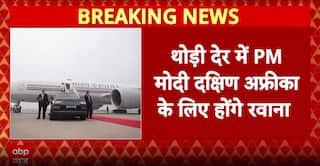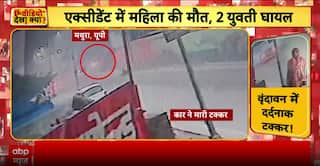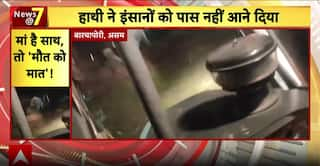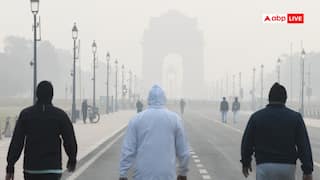Happy Diwali 2023: Precautionary Measures For Toddlers During Diwali
Children, especially toddlers, are more vulnerable to the harmful effects of air pollution because their developing bodies and immune systems are less equipped to handle pollutants.

With Diwali festivities in full swing across India, it's crucial to be mindful of potential health risks, especially for children. Celebrated during the winter months, Diwali coincides with colder and heavier air, leading to smog—a hazardous blend of smoke and fog. Additionally, the traditional practice of bursting fireworks during the celebration further adds to the air pollution.
How Does Pollution During Diwali Impact Toddlers?
Children, especially toddlers, are more vulnerable to the harmful effects of air pollution because their developing bodies and immune systems are less equipped to handle pollutants. Air pollution, particularly fine particulate matter (PM2.5), and airborne pollutants lead to symptoms such as coughing, wheezing, and shortness of breath, similar to bronchitis.
In this regard, Dr. Revathy Kodakkal, who is a Consulting Pulmonologist at Holy Family Hospital Bandra said, "Prolonged exposure to PM2.5 can hinder the normal growth and development of a toddler's lungs, potentially leading to reduced lung function, leading to COPD in the adulthood. As pollution affects their immunity, they become more susceptible to infections, particularly lung infections."
"Some research suggests that exposure to air pollution during early childhood, including the toddler years, may be associated with cognitive and developmental delays, even putting them at higher risk for developing Parkinson's' Disease, ADHD etc. Air pollution can exacerbate allergies and sensitivities in toddlers. Additionally, prenatal exposure to air pollution can affect a child's birth weight and overall health at birth, which can have lasting implications for growth and development during toddlerhood and beyond," she added.
Tips To Take Care Of Toddlers During This Time:
Dr Nihar Parekh, who is a paediatrician and the founder of Cheers Child Care and SOCC (Second Opinion Online Consultation for Children) said, "Children's respiratory systems are particularly sensitive to air pollution. The inflammatory response caused by air pollution can weaken the lung's immune system and make the lungs less susceptible to bacteria and viruses. The increased risk can lead to life-threatening conditions such as pneumonia, especially in infants and the elderly."
"Apart from pollution, noise is also a big problem for babies during Diwali. The sound of fireworks can be stressful for children, causing anxiety and results in disrupting sleep. Parents are advised to create a peaceful and happy environment for their children and reduce noise during the holiday," he added.
Are eco-friendly crackers a viable alternative?
Taking about this, Dr. Revathy Kodakkal said, "Green crackers are a type of firecracker designed to be more environmentally friendly and less harmful to public health than traditional fireworks. They have reduced emissions of sulfur dioxide (SO2), nitrogen oxides (NOx), and particulate matter, have low sound output, may have more biodegradable ingredients, and have fewer heavy metals than standard firecrackers. However, even though marginally safer than regular fireworks, they still emit gases and can cause respiratory issues, increase allergies, cause noise pollution, accidents during bursting & environmental impact. In these dark times of worsening air quality and global warming, it would be better to have a green Diwali, than a green firecracker Diwali."
Why Is It Important To Keep Indoor Air Clean For Toddlers During Diwali?
Pollution can harm your child's lungs, brain, and heart and toxic air can affect a child's immunity, making them more susceptible to health problems such as pneumonia and bronchitis, or inflammation of the bronchi.
Jaidhar Gupta, who is the founder of Nirvana Being said, "Clean, pure air is essential for toddlers for their neurological and physical development. Young children breathe faster than adults and take in more air relative to their body weight, often through the mouth, which takes in more pollutants. Due to their size, they are also closer to the ground, where some pollutants reach peak concentrations. Breathing air with a PM 2.5 concentration of 22 ug/m3 over 24 hours is equivalent to smoking 1 cigarette just by breathing. Based on average concentrations, infants/toddlers are smoking 6-10 cigarettes per day just by breathing. So, it is highly recommended to do indoor air quality treatment for children and other measures like removing carpets and heavy drapes from kids' rooms and removing shoes outside the room as kids have weaker immune systems. Hence, their ability to resist and fight respiratory infections is lower."
Top Headlines







































